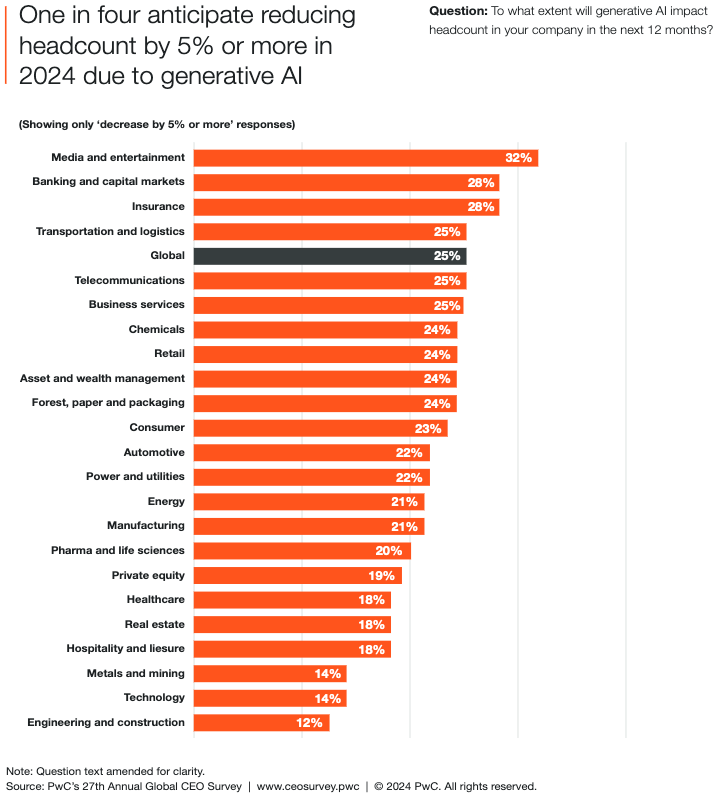
According to a recent PricewaterhouseCoopers (PwC) poll, almost 25% of CEOs worldwide plan to fire at least 5% of their staff as a result of generative artificial intelligence (AI). In response to the poll released on January 15, approximately 4,700 CEOs from 105 countries participated; more than half of the CEOs are in charge of companies with annual sales of more than $100 million.
Less than one-third of CEOs predicted that their firm will fire at least 5% of its employees as a result of generative AI, while 25% of CEOs stated their organisation has already used the technology.
But according to PwC’s analysis, companies that cut employment in certain areas to increase efficiency can “already be offsetting them with hiring in others.”
“Although 14% of technology CEOs anticipate reducing headcount in the next year due to generative AI, 56% also anticipate hiring in 2024.”
The industries most likely to see layoffs driven by generative AI technology were media, entertainment, finance, capital markets, and insurance; the engineering, construction, technology, metals, and mining sectors seemed to be the least vulnerable.

Approximately 70% of CEOs stated that they anticipated AI will alter their business models and necessitate that their staff members acquire new skills within three years.
The IMF says AI may affect 40% of all occupations and increase inequality
The findings of the poll were released the day after Kristalina Georgieva, managing director of the International Monetary Fund (IMF), revealed an analysis indicating that artificial intelligence (AI) is present in 40% of all employment and has the potential to worsen inequality.
According to Georgieva, the integration of AI might lead to a disproportionate increase in pay for around half of the jobs that are exposed to it, since productivity gains from the technology could worsen inequality.
In the other half, AI may replace human labour, which would reduce hiring, pay, and labour demand.
Georgieva continued, “In the worst-case scenarios, some of these jobs may disappear.”
The lack of infrastructure and trained labour in many of these [developing markets and low-income] nations makes it more likely that the technology will eventually exacerbate international inequity.
According to her, it’s imperative that nations establish social safety nets and provide services for labourers who may be endangered by AI.
Big Tech CEOs and international leaders are set to attend the World Economic Forum in Davos, where the influence of technology is anticipated to be a hot issue.
